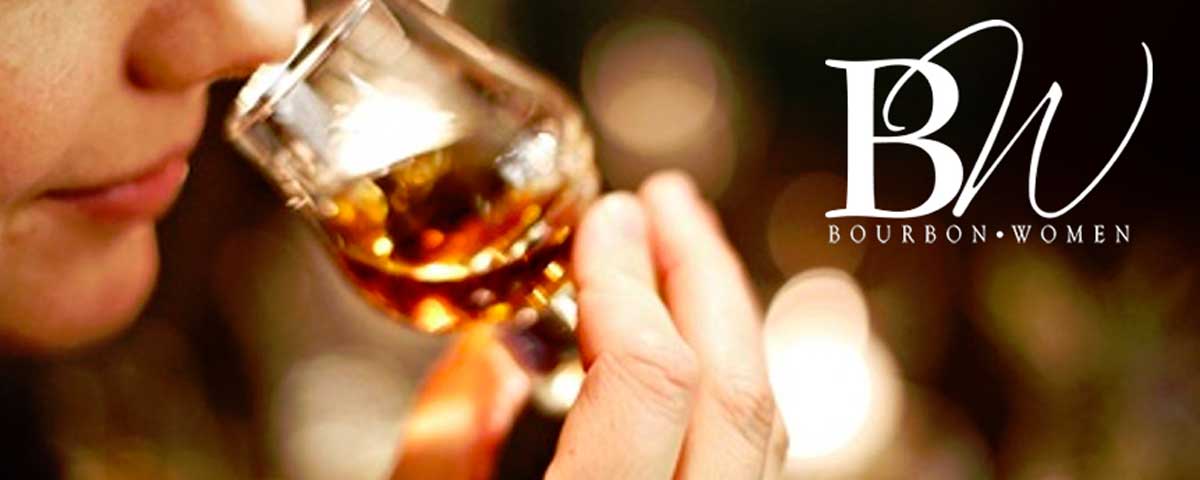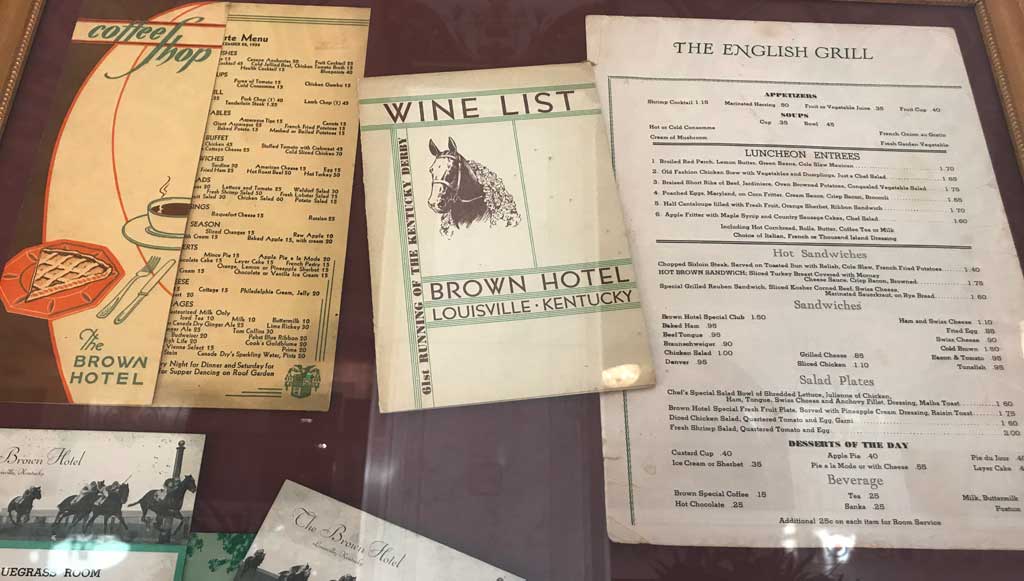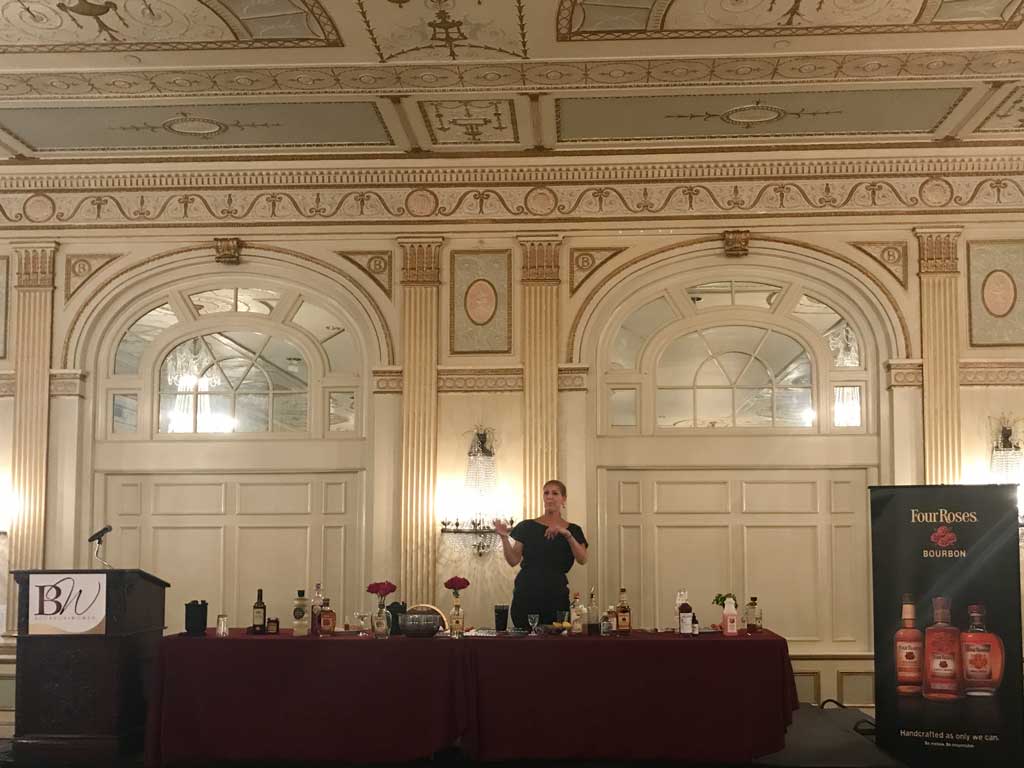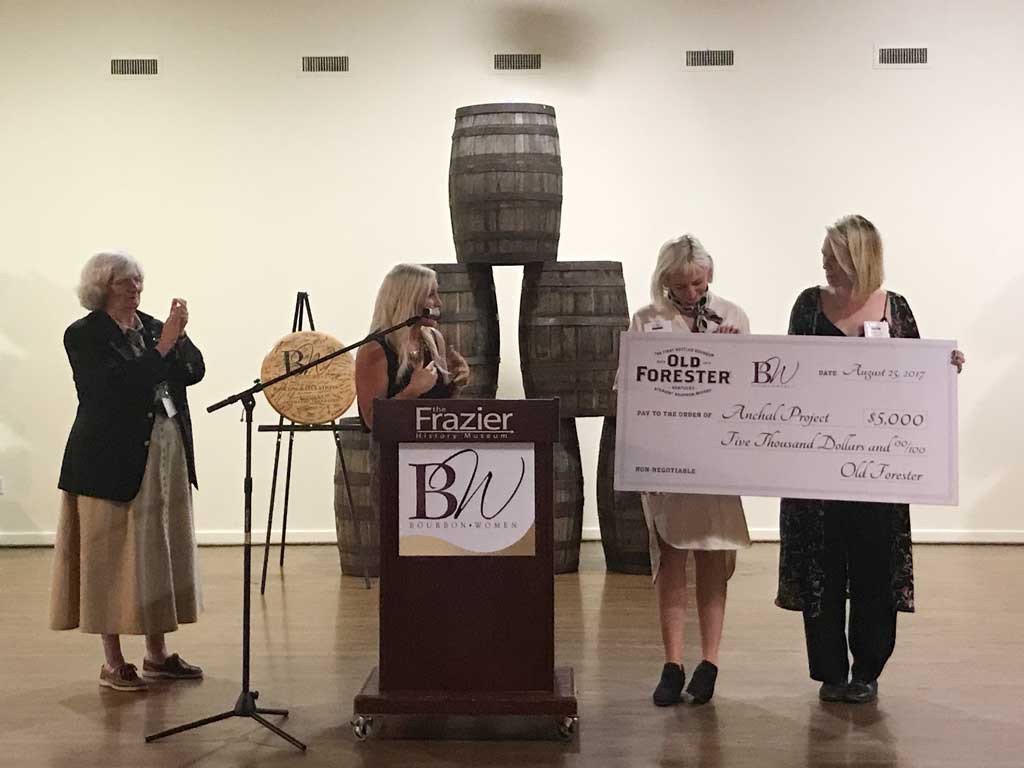Bourbon Women
The phrase “women in x” is everywhere these days. Even though we’ve been around for, well, as long as men have, it seems that only recently people are taking notice of highlighting women in various industries.

The phrase “women in x” is everywhere these days. Even though we’ve been around for, well, as long as men have, it seems that only recently people are taking notice of highlighting women in various industries. Whiskey has been marked as a traditionally masculine subject: men mainly drink it, men mainly make it, and men mainly run the companies that sell it.
Gender is a fraught topic, one that brings many to quick defenses. I won’t get too much down a feminist commentary rabbit hole, but as a woman operating in a sphere dominated by men, it’s important to put it in the open. Women in bourbon should not be seen as a novelty; women are just as capable of making, drinking, discussing, and selling bourbon as men are. The history of bourbon is rich with stories of strong women. Distilling was once part of women’s daily lives, and we certainly would not have passed the Volstead repeal without the fastidious work of women running speakeasies, distilling spirits, and leading a cultural movement. (And yes, I say this fully aware that the Temperance Movement was also led by some very vocal women, but those ladies were crazy.) We do need more women in bourbon – as we do in every industry – especially in leadership roles. To that end, it is important to shift the perceptions of a woman drinking, talking about, or working in bourbon and whiskey to the norm. We just happen to be women, and yes, we rather like bourbon.
I have known about the organization Bourbon Women for quite a few years, though never had the opportunity to attend one of their programs. Founded in Kentucky in 2011, Bourbon Women strives to bring Bourbon-loving women together to enjoy America’s native spirit and, more importantly, to support each other. Their mission is “to be an independent and inspirational forum, bringing women of all age groups together to share our bourbon affinity.” To carry out this mission, every year, they host a Sip-posium. If you think the name is a bit too clever, consider that “symposium” actually derives from the Greek “sumposium,” meaning “fellow drinker.” As in many things, the Greeks were ahead of their time.
The Sip-posium brings Bourbon Women members together for education, networking, and conviviality. As someone who is always on board for helping fellow ladies raise each other up, I jumped at the opportunity when the organization extended an invitation for me to attend this event.

Staying at the historic Brown Hotel in downtown Louisville (where the Sip-posium was also held) it was an immersive Kentucky experience from the start. The Brown Hotel is steeped in history, and they wear it proudly. A Derby favorite, where celebrities can be spotted sipping juleps and manhattans at the famous lobby bar, a locale that prominently features relics of the hotel’s storied past, the Brown is a Louisville institution. Just below the opulently coffered ceilings of the lobby, frames encasing menus from the early days of the hotel feature Thanksgiving dinners (complete with broiled whitefish, Consomme Martha Washington, and other era favorites) for a buck-fifty, while lounge menus boast beef tongue sandwiches for 95 cents and Sanka for a quarter. Though these vintage favorites have been replaced by more modern fare (and prices), one steadfast favorite remains: the iconic Hot Brown Sandwich.
Created to squelch the hunger pangs of late-night soft-shoers at the Brown’s weekend parties, and change it up from the usual ham and eggs, the Hot Brown is a cholesterol-laden delight. Though nothing fancy – Texas toast topped with turkey, a Mornay sauce, tomatoes, and bacon – it is the good friend of any inebriated or hungover person, and a staple of Derby diners and something that will never vanish from The Brown’s culinary repertoire. So it only fits that a booze-centric conference would be held just above the restaurant that serves this quintessential Kentucky dish, you know, just in case.

The weekend program was filled with tastings, distillery tours, and a handful of panel discussions. Some were better than others, and I think there is an opportunity for Bourbon Women to enhance and expand the educational value of their Sip-osium offerings. (To the organizers: more hands-on demonstrations and in-depth discussions! Sharing one cocktail with a room of 50 women isn’t the best way to learn about how to make drinks.) But overall, it is a great opportunity to get together with fellow bourbon lovers, talk shop, and meet new friends.
The Sip-osium kicked off with a cocktail party and dinner at the Frazier Museum in downtown Louisville amidst an exhibition on Prohibition. Upon entrance to the exhibit, I was greeted by the history of distillation, a moonshiner’s still, a disquieting statue of Carry Nation and, a cocktail. Moving through the exhibit, flanked by the likenesses of Al Capone and a flapper or two, members mingled, sipped bourbon, and learned a thing or two about the era. Following the cocktail hour, we were escorted upstairs to dinner where the program included an award for the best amateur cocktail creations (served at the dinner), an introduction by the Kentucky Distillers Association, and a particularly resonating speech by Jackie Zykan, a Master Taster for the Brown-Forman signature label Old Forester.

Jackie approached the podium to present a check from Brown-Forman’s “Give a Shift” program to Anchal, a company that empowers former female sex workers by teaching them crafts and helping them sell their creations through a storefront and website. She covered the basics: why she was there, what the check was for, and who she was. But then she went off script a bit which, she says, is something her marketing folks aren’t always thrilled about. Jackie spoke candidly of her experience as a woman working in the male-dominated bourbon industry, how men wouldn’t take her seriously, about the number of “bless your hearts” she had heard over the years trying to be seen as the legitimate professional she always was, and the tones of surprise that greeted her when she introduced herself as a Master Taster. She was candid and honest. In speaking to the issues that women face in any industry, or in whiskey (as a big-T “Taster” or everyday taster), her words resonated with me deeply.
I’ve certainly experienced sexism and misogyny in the bourbon industry, but also (and like many women) in other aspects of my professional life. Touched by her tone and her courage to go “off-script,” I reached out to her after the Sip-osium to learn more about what inspired to give such an impassioned speech.
Jackie’s path to bourbon wasn’t exactly a direct one. She studied pre-med in college and had hopes of being a Pathologist. But life got in the way, and her dreams of pursuing a career in medicine were sidelined by geographic restrictions and the strains it would put on her marriage. Life then led her and her husband to Kentucky, where she took up bartending and quickly became immersed in the unavoidable history and bourbon culture of Louisville. Hailing from St. Louis, where the most common brown liquors are Crown and Maker’s, a whole new world began to unfurl before her as she learned of the hundreds of bourbons lining the shelves behind almost every Louisville establishment. One thing led to another and through her consistent work in the spirits world, she ended up landing a position with Brown-Forman and Old Forester.
“Positions like the one I’m in weren’t even an option [for women for a long time].” She seems to take umbrage in being labeled a woman in a man’s industry, as she is just someone who does what she loves and just happens to be a woman. “The struggle is real. Women weren’t drinking a lot of bourbon and here I am, a spokesman for it.”
And people do take notice of the fact that she is a woman and tend to point it out not as a mere fact, but more as an attempt to look diverse. “A woman at an event in Denver yelled ‘casting couch’ at me, and I thought ‘are you kidding me?’’ We discussed how women need to be more supportive of each other, especially in this industry, and not take each other down by besmirching their credentials or right to be in a given job. Jackie sometimes struggles with being mistaken as a “bourbon bunny” – the tank top clad ladies I’m sure you’ve seen pouring American Honey in bars. “I’m not a promo model; I’m here as the bourbon expert.”
And she is an expert. Jackie has served as a Master Taster for Old Forester for some time now, and she loves it. She expressed her praise for Campbell Brown, the President of Old Forester, and said she loves that the brand has an “authentic” feel to it: no pretension, just bourbon. And that is what Jackie is striving to make people see: bourbon isn’t just a man’s drink, it isn’t even a new drink for women: it’s just bourbon. “They’re treating women like a sales pitch because it’s hot right now.”
“Bourbon doesn’t have a gender; it’s just liquid.”
Moving away from this gendered image is essential. After all, how can a brand, an industry move away from the “good old boys club” and evolve into one that is welcoming of drinkers of all varieties? Though she says much of it comes from nurture, that folks just don’t know better or that they are a product of their environment, in the end, “Bourbon doesn’t have a gender; it’s just liquid.”
It is my sincere hope that we can move away from these gendered stereotypes, that women in bourbon are either “drinking like a man” or just there to pass out shots and free swag. I hope that Bourbon Women can begin to foster an environment where women do support each other, work to educate and uplift fellow women, and just have a drink without judgment. After all, that’s what Drinking Curious is all about.
